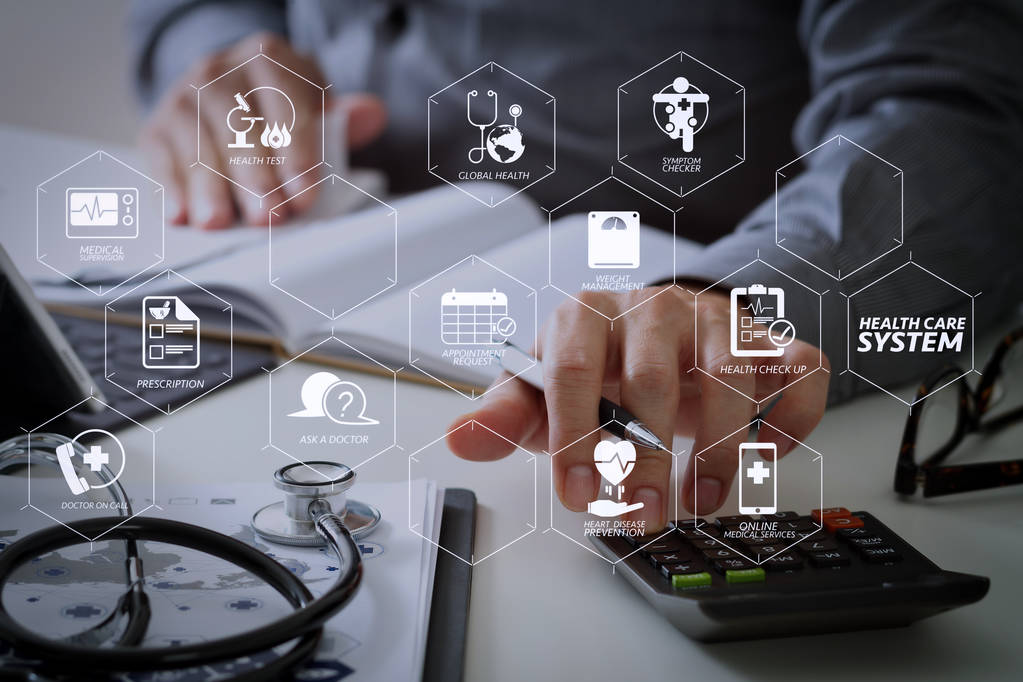In any industry, technology is an indispensable ally. One perfect example is the adoption of Electronic Health Records (EHRs) in the healthcare industry. With EHRs, medical facilities and providers can streamline patient data collection and improve the quality of patient care. EHRs can also simplify accounting for busy healthcare providers. At Denis Cummins Public Accountants, we understand the financial challenges that healthcare providers face. So, today, we’ll discuss how medical facilities & providers can utilise EHRs to manage their finances better.
What Are Electronic Health Records?
Electronic Health Records (EHRs) are digital versions of a patient’s paper charts and contain all the information from a patient’s medical history. These include diagnoses, medications, treatment plans, immunisation dates, allergies, radiology images, and laboratory test results. EHRs can be shared across multiple healthcare settings; authorised users can access the information whenever and wherever they need it, streamlining patient care & record-keeping.
How EHRs Simplify Accounting
EHRs can simplify accounting in healthcare in several ways:
Billing and Coding
EHRs auto-generate billing codes based on the services and treatments provided. That feature helps lower the risk of human error and ensures claims are submitted correctly and on time. More importantly, that saves medical providers time and increases their revenue collection.
Financial Reporting
EHRs provide tons of data that medical businesses can use for financial reporting. Healthcare providers can generate digital reports on revenue cycles, patient demographics, service utilisation, and more. These reports can influence their financial planning, help them make informed business decisions, and allocate resources better and more strategically.
Payroll Management
Do you run a medical practice with multiple employees? Then, you’re aware that payroll can be a headache. Fortunately, EHRs can integrate with payroll systems to track employee hours, manage salaries, and help guarantee compliance with labour laws. They simplify payroll processing, reduce administrative overhead and ensure timely and accurate payment to staff.
Reduction of Administrative Costs
EHRs can automate many administrative tasks, which can result in cost savings. Manual data entry is minimised, errors are reduced, and administrative efficiency is increased. You can redirect these savings to patient care improvements, facility upgrades or additional service offerings that benefit your practice and patients.
Cash Flow Management
The accuracy and efficiency in billing and coding processes through EHRs means claims are processed and reimbursed faster. With this prompt reimbursement, you can maintain positive cash flow management and have a more stable financial foundation. Stable cash flow means you can plan and invest in growth.
Expense Tracking
Expense tracking is a critical element of effective business accounting. Thankfully, EHRs provide exact tracking of expenses related to patient care and operational costs. These detailed records of all financial transactions help healthcare providers monitor spending closely, identify cost savings, and ensure resources are used efficiently.

How to Implement EHRs for Best Accounting Practices
To get the most out of EHRs for accounting, consider the following:
Choose the Right EHR System: Select an EHR system that integrates with your existing accounting software. Make sure the system has automated billing, payroll integration and financial reporting.
Train Staff: Proper training is key to staff using the EHR system effectively. Invest in training programs so all users are proficient in using the software.
Maximise the Features: Review financial reports regularly and use the data to identify areas in your practice to improve. More importantly, maximise the tools and features to keep tabs on information relevant to your small business bookkeeping and accounting.
Get Professional Help: Partner with financial experts like Denis Cummins to help you navigate the EHR implementation and integration. Partnering with a reliable IT Company Canberra can also provide essential support in selecting and integrating the right EHR system tailored to your practice’s specific needs. Professional guidance means you get the most out of your EHR system for accounting and overall financial management.
Summing It Up
EHRs in healthcare practices are a game-changer not just for patient care but also for accounting. By automating billing, financial reporting, payroll management, reducing administrative costs, and cash flow management, EHRs give healthcare providers a valuable financial management tool. The only question is whether you can maximise these benefits.
That’s exactly where we come in. At Denis Cummins Public Accountants, we help healthcare providers simplify their accounting and achieve financial stability through the help of software systems like EHRs. Get in touch today, and let’s discuss how we can help your practice integrate EHRs for better financial management. With our guidance, we can help you streamline your accounting so you can focus on what matters most—patient care.




